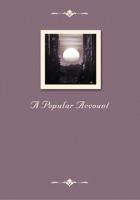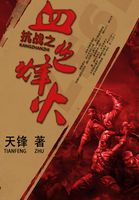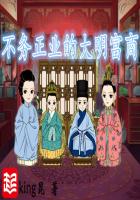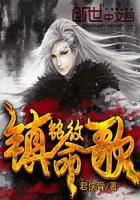THE DISSENTERS
Dissenters not to be Confounded with Heretics--Extreme Importance Attached to Ritual Observances--The Raskol, or Great Schism in the Seventeenth Century--Antichrist Appears!--Policy of Peter the Great and Catherine II.--Present Ingenious Method of Securing Religious Toleration--Internal Development of the Raskol--Schism among the Schismatics--The Old Ritualists--The Priestless People--Cooling of the Fanatical Enthusiasm and Formation of New Sects--Recent Policy of the Government towards the Sectarians--Numerical Force and Political Significance of Sectarianism.
We must be careful not to confound those heretical sects, Protestant and fantastical, of which I have spoken in the preceding chapter, with the more numerous Dissenters or Schismatics, the descendants of those who seceded from the Russian Church--or more correctly from whom the Russian Church seceded--in the seventeenth century. So far from regarding themselves as heretics, these latter consider themselves more orthodox than the official Orthodox Church. They are conservatives, too, in the social as well as the religious sense of the term. Among them are to be found the last remnants of old Russian life, untinged by foreign influences.
The Russian Church, as I have already had occasion to remark, has always paid inordinate attention to ceremonial observances and somewhat neglected the doctrinal and moral elements of the faith which it professes. This peculiarity greatly facilitated the spread of its influence among a people accustomed to pagan rites and magical incantations, but it had the pernicious effect of confirming in the new converts their superstitious belief in the virtue of mere ceremonies. Thus the Russians became zealous Christians in all matters of external observance, without knowing much about the spiritual meaning of the rites which they practised.
They looked upon the rites and sacraments as mysterious charms which preserved them from evil influences in the present life and secured them eternal felicity in the life to come, and they believed that these charms would inevitably lose their efficacy if modified in the slightest degree. Extreme importance was therefore attached to the ritual minutiae, and the slightest modification of these minutiae assumed the importance of an historical event. In the year 1476, for instance, the Novgorodian Chronicler gravely relates:
"This winter some philosophers (!) began to sing, 'O Lord, have mercy,' and others merely, 'Lord, have mercy.'" And this attaching of enormous importance to trifles was not confined to the ignorant multitude. An Archbishop of Novgorod declared solemnly that those who repeat the word "Alleluia" only twice at certain points in the liturgy "sing to their own damnation," and a celebrated Ecclesiastical Council, held in 1551, put such matters as the position of the fingers when making the sign of the cross on the same level as heresies--formally anathematising those who acted in such trifles contrary to its decisions.
This conservative spirit in religious concerns had a considerable influence on social life. As there was no clear line of demarcation between religious observances and simple traditional customs, the most ordinary act might receive a religious significance, and the slightest departure from a traditional custom might be looked upon as a deadly sin. A Russian of the olden time would have resisted the attempt to deprive him of his beard as strenuously as a Calvinist of the present day would resist the attempt to make him abjure the doctrine of Predestination--and both for the same reason. As the doctrine of Predestination is for the Calvinist, so the wearing of a beard was for the old Russian--an essential of salvation. "Where," asked one of the Patriarchs of Moscow, "will those who shave their chins stand at the Last Day?--
among the righteous adorned with beards, or among the beardless heretics?" The question required no answer.
In the seventeenth century this superstitious, conservative spirit reached its climax. The civil wars and foreign invasions, accompanied by pillage, famine, and plagues with which that century opened, produced a wide-spread conviction that the end of all things was at hand. The mysterious number of the Beast was found to indicate the year 1666, and timid souls began to discover signs of that falling away from the Faith which is spoken of in the Apocalypse. The majority of the people did not perhaps share this notion, but they believed that the sufferings with which they had been visited were a Divine punishment for having forsaken the ancient customs. And it could not be denied that considerable changes had taken place. Orthodox Russia was now tainted with the presence of heretics. Foreigners who shaved their chins and smoked the accursed weed had been allowed to settle in Moscow, and the Tsars not only held converse with them, but had even adopted some of their "pagan" practises. Besides this, the Government had introduced innovations and reforms, many of which were displeasing to the people. In short, the country was polluted with "heresy"--a subtle, evil influence lurking in everything foreign, and very dangerous to the spiritual and temporal welfare of the Faithful--
something of the nature of an epidemic, but infinitely more dangerous; for disease kills merely the body, whereas "heresy"
kills the soul, and causes both soul and body to be cast into hell-
fire.















